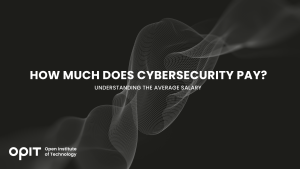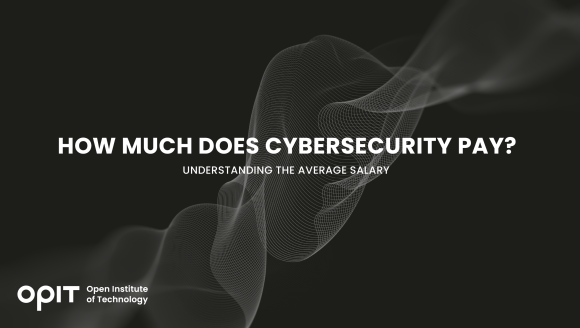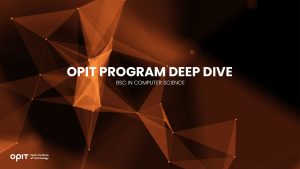

Cybersecurity jobs are better paid than you might expect. Given the skyrocketing significance of the data protection industry, that shouldn’t come as much of a surprise.
If you’ve been wondering what cybersecurity experts take home at the end of the day, this article will reveal the numbers involved. After all, knowing what you could earn gives a clearer picture of whether this field would be worthwhile endeavor for you or not.
Factors Influencing Cybersecurity Jobs Salary
First, let’s look at what makes one cybersecurity job pay more than another. The distinction goes beyond how good an individual is with computers or their knowledge around firewalls, proxies, and the like. Location is also a big factor. Living in or around tech hubs usually means higher pay, but also much higher living costs.
There is also the factor of experience to consider. The more years in the field, the more your salary will grow.
Also, your education level and qualifications matter, too. However, whatever your skill or education level, demand for cybersecurity talent is high. Businesses everywhere are looking for cyber defenders. Therefore, skilled professionals are in a position to negotiate for high pay for their services.
Cybersecurity Salary Overview: Entry-Level vs. Experienced Workers
So, how much does cybersecurity pay? It’s worth noting that you might not make a huge sum right away. But the growth potential within the field is impressive. Entry-level salaries are decent, but as you climb the ranks, your salary will increase accordingly.
It will also depend on the type of job you do. Penetration testers, security analysts, or CISO chairs all have different salaries at different levels. The main thing to remember is that pay will often reflect your skills, so honing them is the main way to help your future earnings soar.
In Europe, starting figures for cybersecurity salary are around €37,000, and can grow to significant sums as you climb the ranks, especially in roles like CISOs where salaries can reach upwards of €180,000.
How Much Do Cybersecurity Professionals Make Globally?
If you’re thinking of taking your cybersecurity talents on a global tour, know that the cybersecurity average salary varies widely around the world. The figures are influenced by local market demand, economic conditions, and living expenses. However, here is a thought worth considering: remote work is changing the way payments for these fields are distributed globally. Now, you can live in one country and work for a company in another, potentially earning more than the local rate. For that reason, it’s an exciting time to explore international opportunities and the global demand to make the most of your skills.
But how much do cybersecurity professionals make in Europe? The salaries are excellent, but can vary depending on where you live. For instance, if you’re eyeing a spot as an entry-level cybersecurity analyst in Germany, you might be looking at an average of €52,539 ($57,420) in 2024. The numbers naturally vary based on role, experience, and location.
Entry-level cybersecurity analysts in the U.S. have starting salaries of around $68,202, rising up to $112,000 as a median figure. Meanwhile, a cyber security engineer in Japan can expect an average cybersecurity salary of around ¥6,963,427 (approximately USD $55,300) in 2024
Maximizing Your Cybersecurity Salary Potential
While the earnings sound appealing, you need the skills and knowledge to harness your earning potential. To climb the ladder, you must make strategic choices to earn the perks, more than anything, through continuous education. Since technology moves at breakneck speeds, and cyber threats emerge even faster, keeping up and staying ahead of the game means being a lifelong learner. Put simply, your education doesn’t end once you leave college or complete a course. As such, you should get extra certificates to show prospective employers that you aren’t being left behind.
However, don’t neglect the power of networking, either. It goes beyond an online presence or having a LinkedIn account. Engage with the cyber security community, attend industry meetups, present your own findings and projects, and lend a hand with open-source projects. Get to know people and you’ll gain opportunities you wouldn’t find in a job ad.
If you’re looking for a place to boost the skills and connections, OPIT is here to help. OPIT’s career-aligned online programs can catapult you into higher-earning roles.
OPIT’s Master’s in Cybersecurity
OPIT’s master’s program in Cybersecurity is one of the most efficient ways to gain the skills and knowledge that can propel you into the upper echelons of cybersecurity. The program is more than a traditional academic education in computer science and cybersecurity. It’s a challenging undertaking but rewards you with knowledge that you can apply in real-life circumstances right away, through practical sessions and workshops.
Over the course of this program, you’ll tackle digital forensics, encryption, firewalls, security systems, and also the strategic thinking behind secure network design. After all, cybersecurity thrives on critical thinking in stress-intensive circumstances and being flexible and creative enough to come up with solutions “on the spot.” However, you’ll be well-equipped for these trials by learning from the best in the industry, people who’ve been at the forefront of cybersecurity debate for years.
High Risk, High Reward
The salaries people earn within cybersecurity sphere reflect the major demand in the field and the skills necessary to complete the job effectively. If you play your cards right, you might be protecting the systems and IT infrastructures of major businesses, nonprofits, or governmental organizations. However, to get to that point, you must learn, and never stop learning. Just as importantly, never underestimate the power of networking and maintaining good relationships.
Programs like OPIT’s master’s degree in cybersecurity are some of the best ways to hone the skills from anywhere in the world, learning from the best in the industry, all at your own pace. Give it a try and see how much of a difference it can make.
Related posts

Computer Science is fast becoming one of the most valuable fields of study, with high levels of demand and high-salaried career opportunities for successful graduates. If you’re looking for a flexible and rewarding way to hone your computing skills as part of a supportive global community, the BSc in Computer Science at the Open Institute of Technology (OPIT) could be the perfect next step.
Introducing the OPIT BSc in Computer Science
The OPIT BSc in Computer Science is a bachelor’s degree program that provides students with a comprehensive level of both theoretical and practical knowledge of all core areas of computer science. That includes the likes of programming, databases, cloud computing, software development, and artificial intelligence.
Like other programs at OPIT, the Computer Science BSc is delivered exclusively online, with a mixture of recorded and live content for students to engage with. Participants will enjoy the instruction of world-leading lecturers and professors from various fields, including software engineers at major tech brands and esteemed researchers, and will have many paths open to them upon graduation.
Graduates may, for example, seek to push on with their educational journeys, progressing on to a specialized master’s degree at OPIT, like the MSc in Digital Business and Innovation or the MSc in Responsible Artificial Intelligence. Or they could enter the working world in roles like software engineer, data scientist, web developer, app developer, or cybersecurity consultant.
The bullets below outline the key characteristics of this particular course:
- Duration: Three years in total, spread across six terms.
- Content: Core courses for the first four terms, a student-selected specialization for the fifth term, and a capstone project in the final term.
- Focus: Developing detailed theoretical knowledge and practical skills across all core areas of modern computer science.
- Format: Entirely online, with a mixture of live lessons and asynchronous content you can access 24/7 to learn at your own pace.
- Assessment: Progressive assessments over the course of the program, along with a capstone project and dissertation, but no final exams.
What You’ll Learn
Students enrolled in the BSc in Computer Science course at OPIT will enjoy comprehensive instruction in the increasingly diverse sectors that fall under the umbrella of computer science today. That includes a close look at emerging technologies, like AI and machine learning, as well as introductions to the fundamental skills involved in designing and developing pieces of software.
The first four terms are the same for all students. These will include introductions to software engineering, computer security, and cloud computing infrastructure, as well as courses focusing on the core skills that computer scientists invariably need in their careers, like project management, quality assurance, and technical English.
For the fifth term, students will have a choice. They can select five electives from a pool of 27, or select one field to specialize in from a group of five. You may choose to specialize in all things cybersecurity, for example, and learn about emerging cyber threats. Or you could focus more on specific elements of computer science that appeal to your interests and passions, such as game development.
Who It’s For
The BSc in Computer Science program can suit a whole range of prospective applicants and should appeal to anyone with an interest or passion for computing and a desire to pursue a professional career in this field. Whether you’re seeking to enter the world of software development, user experience design, data science, or another related sector, this is the course to consider.
In addition, thanks to OPIT’s engaging, flexible, and exclusively online teaching and learning systems, this course can appeal to people from all over the globe, of different ages, and from different walks of life. It’s equally suitable for recent high school graduates with dreams of making their own apps to seasoned professionals looking to broaden their knowledge or transition to a different career.
The Value of the BSc in Computer Science Course at OPIT
Plenty of universities and higher education establishments around the world offer degrees in computer science, but OPIT’s program stands out for several distinctive reasons.
Firstly, as previously touched upon, all OPIT courses are delivered online. Students have a schedule of live lessons to attend, but can also access recorded content and digital learning resources as and when they choose. This offers an unparalleled level of freedom and flexibility compared to more conventional educational institutions, putting students in the driving seat and letting them learn at their own pace.
OPIT also aims not merely to impart knowledge through lectures and teaching, but to actually help students gain the practical skills they need to take the next logical steps in their education or career. In other words, studying at OPIT isn’t simply about memorizing facts and paragraphs of text; it’s about learning how to apply the knowledge you gain in real-world settings.
OPIT students also enjoy the unique benefits of a global community of like-minded students and world-leading professors. Here, distance is no barrier, and while students and teachers may come from completely different corners of the globe, all are made to feel welcome and heard. Students can reach out to their lecturers when they feel the need for guidance, answers, and advice.
Other benefits of studying with OPIT include:
- Networking opportunities and events, like career fairs, where you can meet and speak with representatives from some of the world’s biggest tech brands
- Consistent support systems from start to finish of your educational journey in the form of mentorships and more
- Helpful tools to expedite your education, like the OPIT AI Copilot, which provides personalized study support
Entry Requirements and Fees
To enroll in the OPIT BSc in Computer Science and take your next steps towards a thrilling and fulfilling career in this field, you’ll need to meet some simple criteria. Unlike other educational institutions, which can impose strict and seemingly unattainable requirements on their applicants, OPIT aims to make tech education more accessible. As a result, aspiring students will require:
- A higher secondary school leaving certificate at EQF Level 4, or equivalent
- B2-level English proficiency, or higher
Naturally, applicants should also have a passion for computer science and a willingness to study, learn, and make the most of the resources, community, and support systems provided by the institute.
In addition, if you happen to have relevant work experience or educational achievements, you may be able to use these to skip certain modules or even entire terms and obtain your degree sooner. OPIT offers a comprehensive credit transfer program, which you can learn more about during the application process.
Regarding fees, OPIT also stands out from the crowd compared to conventional educational institutions, offering affordable rates to make higher tech education more accessible. There are early bird discounts, scholarship opportunities, and even the option to pay either on a term-by-term basis or a one-off up-front fee.

The Open Institute of Technology (OPIT) provides a curated collection of courses for students at every stage of their learning journey, including those who are just starting. For aspiring tech leaders and those who don’t quite feel ready to dive directly into a bachelor’s degree, there’s the OPIT Foundation Program. It’s the perfect starting point to gain core skills, boost confidence, and build a solid base for success.
Introducing the OPIT Foundation Year Program
As the name implies, OPIT’s Foundation Program is about foundation-level knowledge and skills. It’s the only pre-bachelor program in the OPIT lineup, and successful students on this 60-ECTS credit course will obtain a Pre-Tertiary Certificate in Information Technology upon its completion. From there, they can move on to higher levels of learning, like a Bachelor’s in Digital Business or Modern Computer Science.
In other words, the Foundation Program provides a gentle welcome into the world of higher technological education, while also serving as a springboard to help students achieve their long-term goals. By mixing both guided learning and independent study, it also prepares students for the EQF Level 4 experiences and challenges they’ll face once they enroll in a bachelor’s program in IT or a related field.
Here’s a quick breakdown of what the OPIT Foundation Program course involves:
- Duration: Six months, split into two terms, with each term lasting 13 weeks
- Content: Three courses per term, with each one worth 10 ECTS credits, for a total of 60
- Focus: Core skills, like mathematics, English, and introductory-level computing
- Format: Video lectures, independent learning, live sessions, and digital resources (e-books, etc.)
- Assessment: Two to three assessments over the course of the program
What You’ll Learn
The OPIT Foundation Program doesn’t intensely focus on any one particular topic, nor does it thrust onto you the more advanced, complicated aspects of technological education you would find in a bachelor’s or master’s program. Instead, it largely keeps things simple, focusing on the basic building blocks of knowledge and core skills so that students feel comfortable taking the next steps in their studies.
It includes the following courses, spread out across two terms:
- Academic Skills
- Mathematics Literacy I
- Mathematics Literacy II
- Internet and Digital Technology
- Academic Reading, Writing, and Communication
- Introduction to Computer Hardware and Software
Encompassing foundational-level lessons in digital business, computer science, and computer literacy, the Foundation Program produces graduates with a commanding knowledge of common operating systems. Exploring reading and writing, it also helps students master the art of communicating their ideas and responses in clear, academic English.
Who It’s For
The Foundation Year program is for people who are eager to enter the world of technology and eventually pursue a bachelor’s or higher level of education in this field, but feel they need more preparation. It’s for the people who want to work on their core skills and knowledge before progressing to more advanced topics, so that they don’t feel lost or left behind later on.
It can appeal to anyone with a high school-level education and ambitions of pushing themselves further, and to anyone who wants to work in fields like computer science, digital business, and artificial intelligence (AI). You don’t need extensive experience or qualifications to get started (more on that below); just a passion for tech and the motivation to learn.
The Value of the Foundation Program
With technology playing an increasingly integral role in the world today, millions of students want to develop their tech knowledge and skills. The problem is that technology-oriented degree courses can sometimes feel a little too complex or even inaccessible, especially for those who may not have had the most conventional educational journeys in the past.
While so many colleges and universities around the world simply expect students to show up with the relevant skills and knowledge to dive right into degree programs, OPIT understands that some students need a helping hand. That’s where the Foundation Program comes in – it’s the kind of course you won’t find at a typical university, aimed at bridging the gap between high school and higher education.
By progressing through the Foundation Program, students gain not just knowledge, but confidence. The entire course is aimed at eliminating uncertainty and unease. It imbues students with the skills and understanding they need to push onward, to believe in themselves, and to get more value from wherever their education takes them next.
On its own, this course won’t necessarily provide the qualifications you need to move straight into the job market, but it’s a vital stepping stone towards a degree. It also provides numerous other advantages that are unique to the OPIT community:
- Online Learning: Enjoy the benefits of being able to learn at your own pace, from the comfort of home, without the costs and inconveniences associated with relocation, commuting, and so on.
- Strong Support System: OPIT professors regularly check in with students and are on hand around the clock to answer queries and provide guidance.
- Academic Leaders: The OPIT faculty is made up of some of the world’s sharpest minds, including tech company heads, experienced researchers, and even former education ministers.
Entry Requirements and Fees
Unlike OPIT’s other, more advanced courses, the Foundation Program is aimed at beginners, so it does not have particularly strict or complex entry requirements. It’s designed to be as accessible as possible, so that almost anyone can acquire the skills they need to pursue education and a career in technology. The main thing you’ll need is a desire to learn and improve your skills, but applicants should also possess:
- English proficiency at level B2 or higher
- A Secondary School Leaving Certificate, or equivalent
Regarding the fees, OPIT strives to lower the financial barrier of education that can be such a deterrent in conventional education around the world. The institute’s tuition fees are fairly and competitively priced, all-inclusive (without any hidden charges to worry about), and accessible for those working with different budgets.
Given that all resources and instruction are provided online, you can also save a lot of money on relocation and living costs when you study with OPIT. In addition, applicants have the option to pay either up front, with a 10% discount on the total, or on a per-term basis, allowing you to stretch the cost out over a longer period to ease the financial burden.
Have questions?
Visit our FAQ page or get in touch with us!
Write us at +39 335 576 0263
Get in touch at hello@opit.com
Talk to one of our Study Advisors
We are international
We can speak in:


